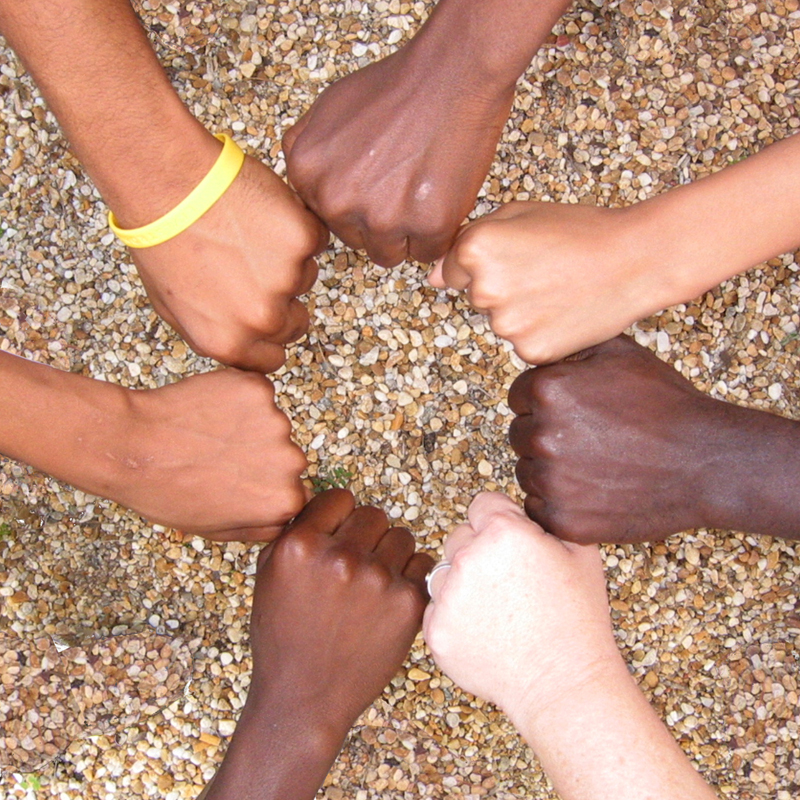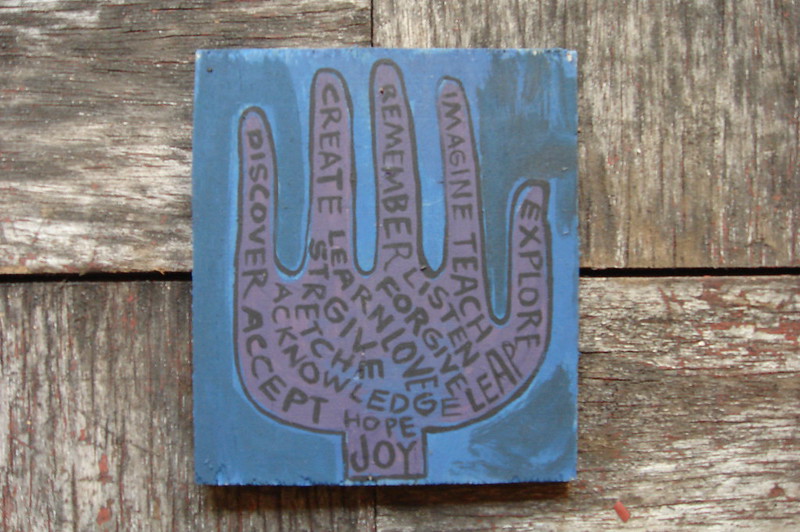Revised Common Lectionary Reflection, Fifteenth Sunday after Pentecost, Year A
September 13, 2020

Lessons: Genesis 50:15-21; Psalm 103:91-7), 8-13; Romans 14:1-12; Matthew 18:21-35
Theme: God’s faithful and generous people work against the human tendency to judge and hold grudges, knowing that all people belong to and are accountable to God. We build bridges of forgiveness.
Key Scripture: Welcome with open arms fellow believers who don’t see things the way you do. And don’t jump all over them every time they do or say something you don’t agree with—even when it seems that they are strong on opinions but weak in the faith department. Remember, they have their own history to deal with. Treat them gently. – Romans 14:1-2 (The Message)
How open are the arms of your Body of Christ, your Beloved Community, the doors to your congregation’s building? In all my years of vocational church work I have yet to encounter a congregation that doesn’t consider itself to be welcoming to everyone. or “just like a family.” Yet in practice, most congregations have limits to their welcome and varying definitions of who is family and who is not. Why? Well, because the Body of Christ in this place and time is comprised of humans, and humans sin and mess things up.
What are the issues your congregation gets stuck on or argues about? Is it politics in the pulpit as election-year fervor increases? Is it how to best use the church’s resources for ministry — for a new parking lot or organ renovation? What about power struggles for internally vaunted hierarchies that show up in the form of altar guilds, kitchen committees, or other committees and church groups?

How quick are we to judge other church members, the ones who don’t think as we do, or who have a different vision for what the church can be? How about giving visitors the stink-eye if they mistakenly sit in “our” pew or have restless young children? What about parking lot gossip sessions? Do members accuse the pastor or other leaders of being too political? How easily are feelings hurt? Have members left over conflicts or hurts?
If any of these questions rings true to you, then this week’s lessons are important ones to preach, teach, pray over, and ponder. Jesus, Paul, and Joseph have a lot to teach us about growing as disciples and as the Beloved Community. Through these lessons we learn to be bridge builders and faithful forgivers. Here are a few ideas for each lesson. May your faithful and fruitful preaching and teaching be blessed and a blessing to many.
Genesis 50:15-21: We might call this a “chickens come home to roost” story, but there’s a twist. Jealousy and fear drove Joseph’s brothers to sell him into slavery, and Joseph suffered greatly. God, however, was faithful to Joseph and not only preserved his life but also opened doors to his success and prosperity. When famine drives Israel’s sons to seek help in Egypt, that is when they come full circle with their sibling. Joseph treats them well, having worked through forgiveness and being willing to lean into restoration and relationship. Now that Israel (a.k.a. Jacob) has died, the brothers are afraid of a fresh wind of retribution. They fall before Joseph in fear, but he reassures them, saying, “Even though you intended to harm to me, God intended it for good, in order to preserve a numerous people, as he is doing today. So have no fear; I myself will provide for you and your little ones” (Genesis 50:20-21a). Somehow, by the grace of God, Joseph works through the process of forgiveness, takes the long view, and makes a real difference in the lives of many people.
Psalm 103:(1-7), 8-13: The psalmist opens with praise and blessing for God’s goodness and benefits, which he outlines in the remaining verses. We learn much about the nature of God, including that “The LORD is merciful and gracious, slow to anger and abounding in steadfast love” (v. 8). The attributes of God are also attributes of the Christ, so as Christians (“little Christs”) these attributes should be reflected in our lives, too. We are not perfect, but we can lean in to this way of living and being as the Christ works to restore all creation.
Romans 14:1-12: This passage is much more than a debate between omnivores and vegetarians. Try reading it as Eugene Peterson translates the lesson in The Message. It may put a fresh and compelling spin on the instructions. We aren’t to quibble about our personal differences and likes or dislikes. Christ calls all of us to the table, bringing our diverse gifts and talents with us to the glory of God. When we gather as Christ’s Body, all other identifiers should be left at the door. Jesus doesn’t care if you’re a Democrat or a Republican, a Steelers or Eagles fan. Jesus isn’t undone by your preference for traditional, contemporary, or contemplative worship liturgies. Scripture tells us God cares more about whether you show up fully for worship and life in community, especially how we treat one another and those on the margins. The hard part is avoiding the judgment and stereotyping that humans so regularly fall into; instead, we are called to be bridge builders to greater understanding, fellowship, and a will to work for the common good in Christ. We will all stand before God holding our lives in our hands—the good, the bad, and the ugly—completely dependent on divine mercy and grace. Paul’s final words this week sum it up nicely: “So tend to your knitting. You’ve got your hands full just taking care of your own life before God” (Romans 14:12, The Message).

Matthew 18:21-35: Perhaps we could call this lesson “Trying to get around having the chickens come home to roost and failing miserably.” Yes, that’s a long title, but there’s a lot going on here. Peter is trying to pin Jesus down as to how often one should forgive a fellow believer. Peter suggests the complete number of seven. Jesus swats that answer down like an annoying fly: “Not seven times, but, I tell you, seventy-seven times” (Matthew 18:22). In other words, forgiveness is not an event but a process. It is designed to free both offender and victim, to work reconciliation and restoration. Yet because of our fear and tendency to be “judgy” with one another, we have turned more to punitive responses and punishment, thus perpetuating cycles of violence, pain, and suffering.
Jesus doesn’t stop with treatment of fellow believers. He launches into a parable with societal impact in the story of the unforgiving servant. We are to be agents of mercy, not justice, retribution, or judgment. All one has to do is look at systemic structures of racism, violence, criminal justice, and consumer debt to see how far we as a culture have strayed from Jesus’ instructions. We are conditioned to judge worth, place, and value rather than practice neighbor love and mercy. The only way to break the cycle is to turn our hearts to the one we claim to follow and begin to practice what he teaches us. The Beloved Community must examine its complicity in structures that are not of God and decide together a way forward that shows mercy and restoration. We must practice forgiveness and mercy until our hearts break open and fill with Christ’s light and love poured out for the world.
In Worship
Chances are your congregation is “purple” — composed of both “blue” and “red” folk when it comes to political party affiliation. The question to explore is how do we come together across identities and party loyalty to look at issues through a gospel lens. As Christians we can’t really get around Jesus’ teachings and their implications for how we live, share our resources, vote, and lobby for policies that align with our faith understandings. So how did we get so far apart? Perhaps the answer is that we got so involved in winning, having our way no matter the cost, and being right, that we’ve forgotten that we have much more in common than we do differences. In fact, we’ve let social media and pundits define our differences and sweep our commonalities out with the trash. Truth and justice don’t sell or whip a base into action.
Check out the website for the Centre for Restorative Justice & Reconciliation. They have done amazing work over the past 20 years in some 40 countries around the world. You will find some good stories to weave into your worship and preaching/teaching.
With Youth
What does it take to seek mercy rather than retribution? What does it take to do the right thing in the face of your peers who are silent or doing otherwise? Check out this short student-made film about bullying and discuss how you would respond as a Christian. What makes it difficult? Complicated? Confusing? Rewarding?
With
Children
This week’s focus verse is Matthew 18:22 – Jesus said
to [Peter], “Not seven times, but I tell you, seventy-seven times.”
Peter asks Jesus how many ties he should forgive a fellow believer who sins against him. I guess he is feeling pretty generous with seven times. Jesus has other ideas. He tells Peter to forgive seventy-seven times. You see forgiveness is not as simple as just saying, “I’m sorry.” You’ve probably had someone tell you they were sorry but didn’t seem very sorry. Maybe you’ve said “sorry” that way. Jesus wants us to work on forgiveness–even if it takes seventy-seven tries. Why? Because forgiveness is all about freedom! To forgive is to release the power a wrong has over you. It also frees the other person from guilt and shame.
Sometimes we are hurt so badly that it seems impossible to forget the hurt and forgive the one who hurt you. That’s okay. Some hurts take time to heal. Some hurts may never be forgotten, but the slow, steady work of forgiveness can take away the sharp edges and some of the pain.
The goal of forgiveness is to restore both parties to community. Sometimes it doesn’t work. It often isn’t easy. Thankfully, the Holy Spirit is at work in all of us helping us to practice and perhaps seek forgiveness. So don’t give up. Ask Jesus to help you with forgiveness so that your life can be better. Pray for your enemies. Love your neighbors. And above all, love God with all you’ve got.
Finish with a simple echo prayer and blessing.
Dear God (Dear God),
Thank you (Thank you) for loving us (for loving us). Thank you for always forgiving us (Thank you for always forgiving us). Help us to love others (Help us to love others), and to forgive them (and to forgive them). Keep us from fear (Keep us from fear). Keep us hopeful (Keep us hopeful). Make us helpful (Make us helpful). Give us peace (Give us peace). Amen (Amen).
Weekly
Stewardship Bulletin Insert
“We do not live to ourselves, and we do not die to
ourselves,” says Paul in Romans 14:7. In the Beloved Community we are all
connected and accountable to one another. This is good stewardship because it
reminds us that we need one another and are stronger together.
Stewardship at Home
Spend some time this week learning about and pondering the concept of restorative justice and forgiveness. Consider watching this documentary on YouTube: How to Love Your Enemy: A Restorative Justice Story. You might also want to read Just Mercy by Bryan Stevenson or Dead Man Walking by Sr. Helen Prejean. If you prefer watching films, both books have been turned into films.
2017 Reflection: https://www.stewardshipoflife.org/2017/09/the-work-of-forgiveness/
Note: Reprint rights granted to congregations and other church organizations for local, nonprofit use. Just include this note: “Copyright (c) 2020, Rev. Sharron Blezard. Used by Permission.” Other uses, please inquire: thewritelife@hotmail.com.



Leave a Reply